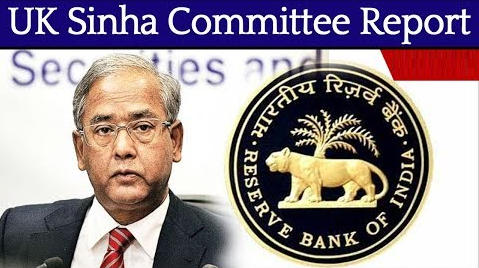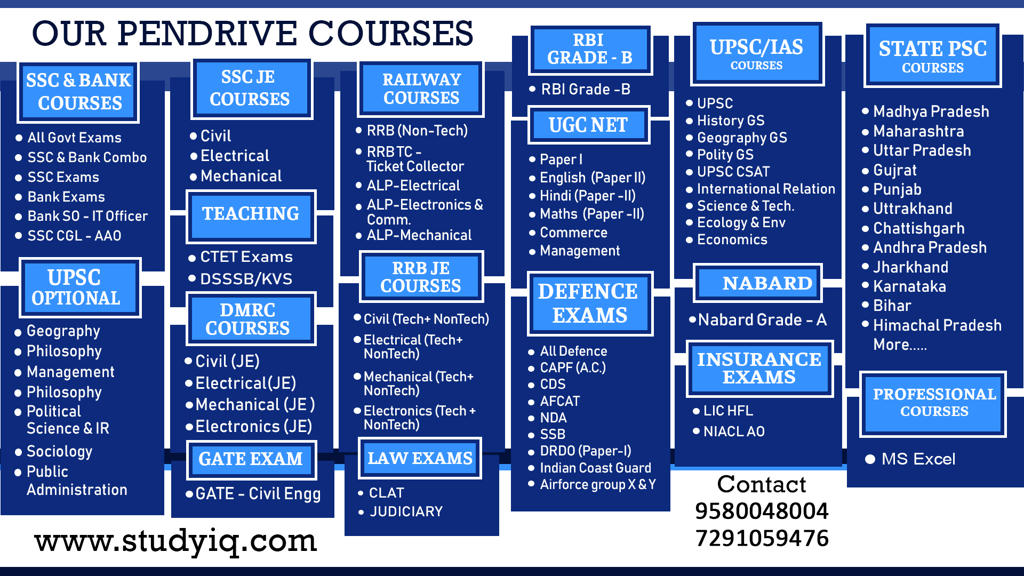Table of Contents


IMPORTANCE OF MSME’S
- Engines of growth of India.
- The MSME sector employs about 111 million people.
- It accounts for more than 80% of the total industrial enterprises.
- They account for 28% of GDP.
- About 45% of total manufacturing output and 40% of the total exports.
COMMITTEE
- In January 2019, the RBI appointed an 8-member expert committee headed by former SEBI chairman U.K. Sinha to comprehensively review and propose long-term solutions for revival of the micro, small and medium enterprises (MSME) sector.
- Ram Mohan Mishra
- Pankaj Jain
- P. K. Gupta
- Anup Bagchi
- Abhiman Das
- Sharad Sharma
- Bindu Ananth
TERMS OF REFERENCES
- Review the current institutional framework in place to support the MSME sector.
- Impact of the recent economic reforms.
- Identify the structural problems affecting its growth.
- To study the global best practices with respect to MSMEs and recommend its adoption in India.
NEED FOR THIS COMMITTEE?
- The MSME sector has been facing stress due to
- The demonetisation exercise
- Implementation of GST.
- The liquidity crunch triggered by a series of debt defaults by group companies of Infrastructure Leasing and Financial Services Ltd in 2018.

CHALLENGES IN MSME SECTOR
- Access to technology.
- IPR related issues.
- Low ICT usage.
- Wasteful usage of resources/manpower.
- Energy inefficiency and associated high cost.
- Poor competitiveness in the overall MSME sector.
RECOMMENDATIONS OF THE COMMITTEE
Distressed Asset Fund
- To provide relief to small businesses hurt by demonetization, GST and an ongoing liquidity crunch.
- Creation of a Rs.5,000 crore distressed asset fund to assist units in clusters.
Fund of Funds
- A government-sponsored Fund of Funds of Rs. 10,000 crore.
- To support venture capital and private equity firms investing in MSMEs.
MSME Act
- The committee recommended an amendment to the MSME Development Act, 2006.
- Small industries face problems of delayed payments & legal provisions available under the act is weak.
- All MSMEs to mandatorily upload all their invoices above an amount to an information utility.
SIDBI (Small Industries Development Bank of India)
- It has recommended expanding the role of SIDBI.
- SIDBI must expand the credit markets for MSMEs in underserved districts and regions.
- Provide new sources of funding to MSMEs through development of additional instruments of debt & equity.
PSBLoansIn59Minutes.com
- The portal should also cater to new entrepreneurs who may not have info. like GSTIN, income-tax returns.
- A timeline of 7-10 days needs to be fixed for disposal of applications after in-principle approval.
- The threshold of loan should be enhanced up to ₹5 crore.
Loans under the MUDRA
- Doubling the limit on collateral-free loans to Rs 20 lakh.
- Shishu scheme– loans up to Rs 50,000.
- Kishor scheme– loans above Rs 50,000 and up to 5 lakh.
- Tarun scheme– loans above Rs 5 lakh and up to Rs 10 lakh.

Technology
- The committee made a case for greater adoption of technology-facilitated solutions to many of the problems encountered by the MSME sector.
- Technology Upgradation Fund Scheme in 1999. (ATUFS)
- SAATHI (Sustainable and Accelerated Adoption of efficient Textile technologies).
Other Recommendations
- Making it mandatory to source 25% of PSU needs from MSME units through GeM portal.
- Setting up an apex national and State-level council for MSMEs.
- Group policies for death and accident cover for MSME entrepreneurs. (significantly higher than the cover currently offered by the PMSBY and PMJJBM).
CONCLUSION
- Government agencies, NGOs, voluntary organisations, corporate sector, banks, regulators, MSME units and their forums will have to work in tandem to accelerate the pace of growth.
- Even in the midst of 50 years of the nationalised banking system, 86% of 63.38 million MSME units do not have access to bank credit.
Latest Burning Issues | Free PDF






















 WhatsApp
WhatsApp